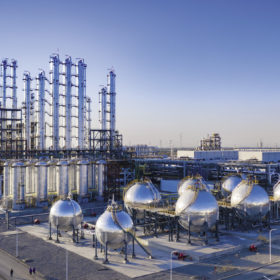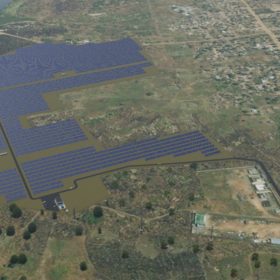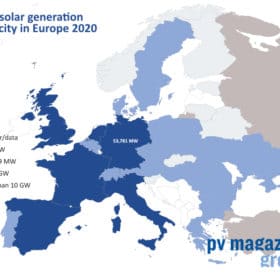EU approves renewables incentives for Greek islands
The European Commission has given its seal of approval to a government program which will drive an estimated 264 MW of solar and wind capacity across 47 islands while they await connection to the mainland grid.
Latvian plan to exempt big energy consumers from renewables surcharge approved by EU
The Baltic state has offered energy-intensive, international-facing industries up to an 85% discount on a surcharge levied on electricity consumers since May 2017 and made the scheme wider ranging this year, in a move approved by the European Commission.
Chinese PV Industry Brief: Daqo announces $5.2bn investment to expand capacity
The polysilicon maker has announced it wants to build another factory in in Baotou City, Inner Mongolia. Elsewhere, the National Energy Administration has said new PV installations for the first 11 months of the year totaled 34.83 GW.
Financial close for Mozambique’s first solar-plus-storage project
Anglo-Norwegian public funding body Globeleq has said the 19 MWp/2MW-7 MWh Cuamba project will be supplying electricity during the second half of next year.
Europe faces ‘new era of energy dependency’
The EU has been pouring money into European battery manufacturing and recycling projects but has, as yet, been unable to address the critical question of raw materials, according to analyst WoodMac.
Norwegian investor raises stake in company developing ‘perovskite-boosted’ solar cells
Swedish business Evolar is working on a bolt-on piece of production equipment which would upgrade the cell lines of conventional manufacturers with a perovskite lift in performance.
China and India to drive record world coal demand next year
Advances in solar power and other clean energy technologies have failed to keep up with demand for electricity as economies rebound from the Covid crisis and China and India’s fossil fuel appetite will ensure the world stays well short of what is needed for a net zero 2050 for at least the next three years.
Chinese PV Industry Brief: CPIA expects no more than 55 GW of new PV capacity this year
The world’s biggest solar market is expected to add between 45 and 55 GW of new solar in 2021, the head of the China Photovoltaic Industry Association has revealed. Furthermore, Longi has further lowered its wafer prices and Xinyi Solar said it wants to build a new US$942 million solar glass factory in Yunnan Province.
EU member states charging toward unambitious PV targets – SolarPower Europe
The national goals set by European countries two years ago already look hopelessly out of date thanks to the global PV boom. The Euro trade association for the industry has called for ambitions to be radically scaled up in 2023 if the world is to have any chance of capping temperature rises at 1.5C.
European Commission suggests zero-emission building mandate for 2030
The proposed measure, which will now pass to the Council of Ministers and European Parliament for debate, would further the adoption of PV, according to SolarPower Europe, especially if the commission’s proposal it be applied to public sector structures from 2027 is adopted.











